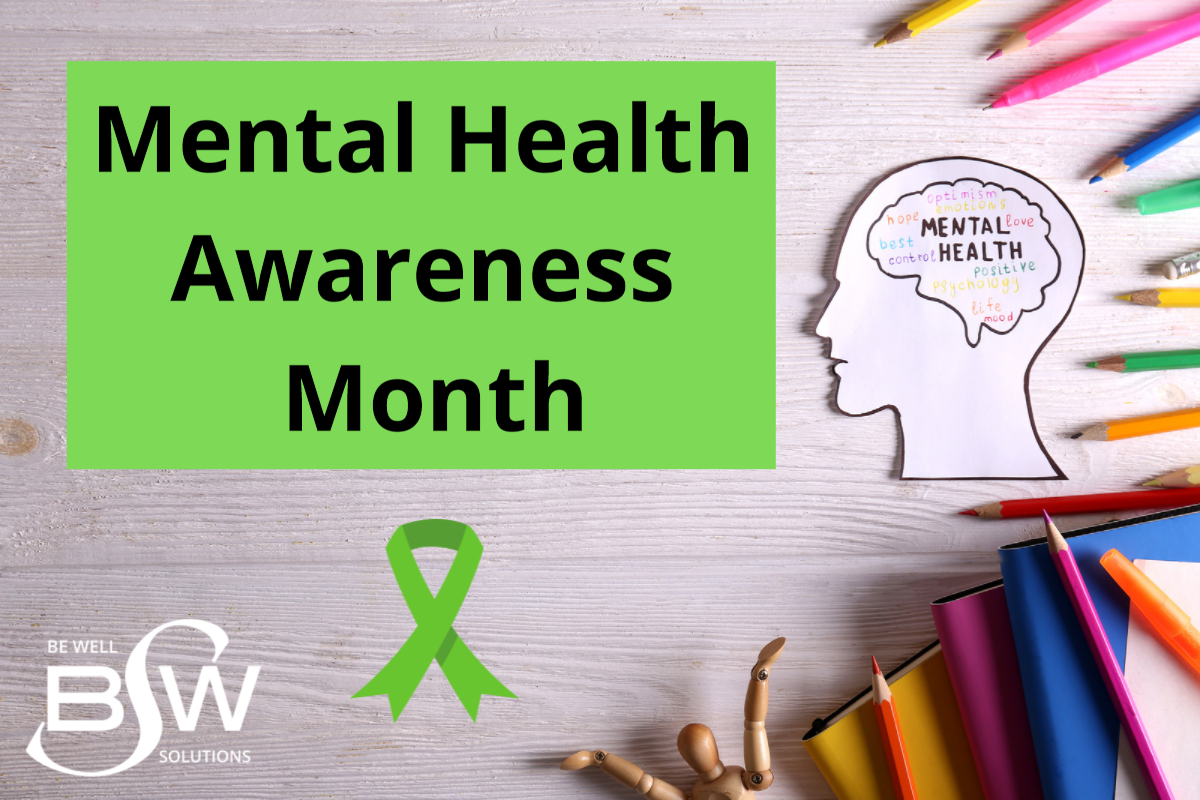
May is Mental Health Awareness Month
Mental Health Awareness Month has been observed in the U.S. since 1949. Mental health refers to our emotional or psychological wellbeing, and many argue it is the most valuable aspect of health. Mental Health Month was instituted to raise awareness about mental health and signs and symptoms of imbalance that require help from a professional. Mental illness can affect people of any age, including children and adolescents.
Our physical and emotional health has been increasingly challenged by the pandemic and other recent events, so maintaining psychological balance is as difficult as it has ever been.
Mental illnesses, such as depressive and anxiety disorders, are among the most common conditions in the United States today, affecting one in five Americans at any given time. Despite the huge numbers, many people with emotional illnesses often feel very alone. These conditions affect how people think, feel, and behave daily. This often generates feelings of hopelessness and helplessness. As a result there is significant distress experienced by the victims and their loved ones.
The good news is that doctors and other brain scientists are making fantastic inroads toward helping people experience complete recoveries from these difficult conditions.
Understanding and appreciating that these ailments are medical problems is a great first step in addressing treatment. It also helps remove the stigma unfairly associated with these conditions. The National Alliance on Mental Illness, NAMI is a wonderful organization that works year-round on education and advocacy on behalf of victims of mental illness and their loved ones. Visit their site to experience some of the wonderful work done in the interest of healing and hope.
May is also a good month to consider your family and personal history, as many psychological conditions have a genetic component, and many life experiences predispose us to developing these conditions. Finally, it is also an opportunity to remind us to do the things to help protect us from getting sick, such as proactive problem solving, daily exercise, and appreciating the importance of relaxation, proper sleep and emotional balance.
Signs and Symptoms of a Mental Illness
Signs of a mental illness that warrant seeking help from your doctor or another qualified professional include, among others:
- Feeling sad or down
- Confused thinking or inability to focus
- Excessive fears, worries or feelings of guilt
- High or low mood swings
- Withdrawal from family, friends, and activities
- Lack of energy or difficulty sleeping
- Detachment from reality (delusions)
- Feeling suspicious or paranoid
- Inability to cope with daily problems or stress
- Trouble relating to other people
- Major changes in appetite or weight
- Violent urges
- Suicidal thoughts
It is essential to consult your doctor if you think you might be suffering from a mental illness. Other helpful resources include Employee Assistance Programs (EAP’s), and specialists (medical doctors and others) that are specifically trained to treat brain-based illnesses.
If you need immediate assistance, contact the NAMI HelpLine to find out what services and supports are available in your community. If you or someone you know needs help now, you should immediately call the National Suicide Prevention Lifeline at 1-800-273-8255 or call 911.
Other great resources for information include:
- The Centers for Disease Control and Prevention (CDC)
- Mental Health.gov
- The World Health Organization (WHO)
Here’s wishing you a happy and healthy spring and summer.
Written by BWS Founder- Michael Schechter, MD
Continue reading May 2022 Newsletter: Make Mental Health a Priority
